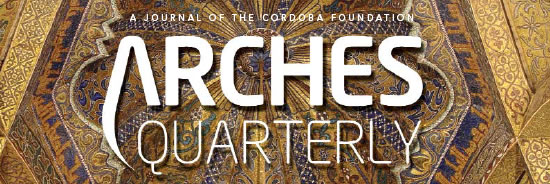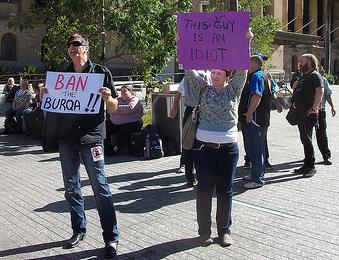The thing about Italy’s proposed law to ban women from wearing veils that cover their faces is that it’s not clear what difference it would make.
Just like in France or Belgium, which have introduced similar measures, Italy does not have a large population of women who wear the burqa or the niqab, which cover almost the entire body and face. “In my 20 years in Italy, I don’t think I’ve seen ten women who wear the veil,” says Izzeddin Elzir, head of the Union of Islamic Communities in Italy (UCOII), the country’s largest Muslim organization. According to Elzir, most Muslims in Italy subscribe to a school of Islam that doesn’t require women to keep their faces covered. “In summer, there are more, because there are lots of tourists [from Arabic countries],” he says. “But here in Italy, we see few cases.”
The legislation, which was approved by a parliamentary commission on Tuesday, occupies a strange place in the Italian political spectrum, uniting the socially liberal left with the xenophobic right. (A similar measure was floated by the previous left-wing government.) If approved by parliament, it would close a religious exemption to previous legislation that prohibits anybody in Italy from donning garb that would make their identification impossible. The proposed law has the support of the Northern League, a populist political party that has built its electoral success by fanning fears in a country being changed rapidly by immigration.
The effort to ban the burqa has the support of human-rights groups, like the EveryOne Group, which campaigns for the protection of minorities. “The reason [the burqa] is worn is to hide the woman, to limit her expression,” says the activist group’s president Roberto Malini. But he acknowledges that on this matter, the group finds itself in strange accordance with the Northern League, which has sponsored similar legislation on the local level, including one in the city of Bergamo, where kebab shops were recently banned from the historic city center. “Everything they do is to seed the fear of Islam,” says Malini.
For Elzir of UCOII, to reject the bill is to stand for religious freedom – a devout woman should be free to cover herself if she wants. He adds that those women who are being forced to don a burqa by their husbands risk being confined to their homes if the proposal is made law. “We say we are for the liberty of all,” says Elzir. “If there’s a woman who is obliged to [wear the veil], let’s work together to help get her out of this situation. Let’s not make a law against her.” He believes the bill is more about politics than policy, a distraction from the bigger issues. “Our parliament should focus on issues that impact all citizens, not just one or two people,” he says. “The citizens of Italy need an answer to this economic crisis. And instead our parliament is studying whether our Islamic women should be covered or not.”
Time, 5 August 2011


 Following on from the Australian Defence League’s
Following on from the Australian Defence League’s